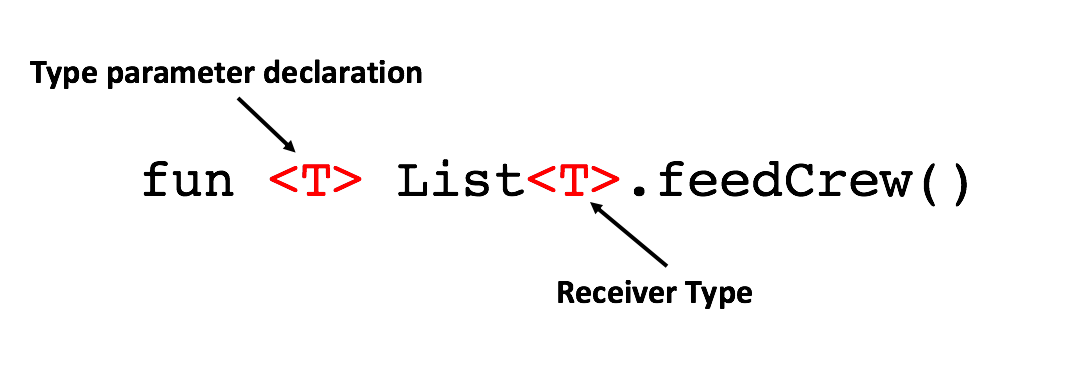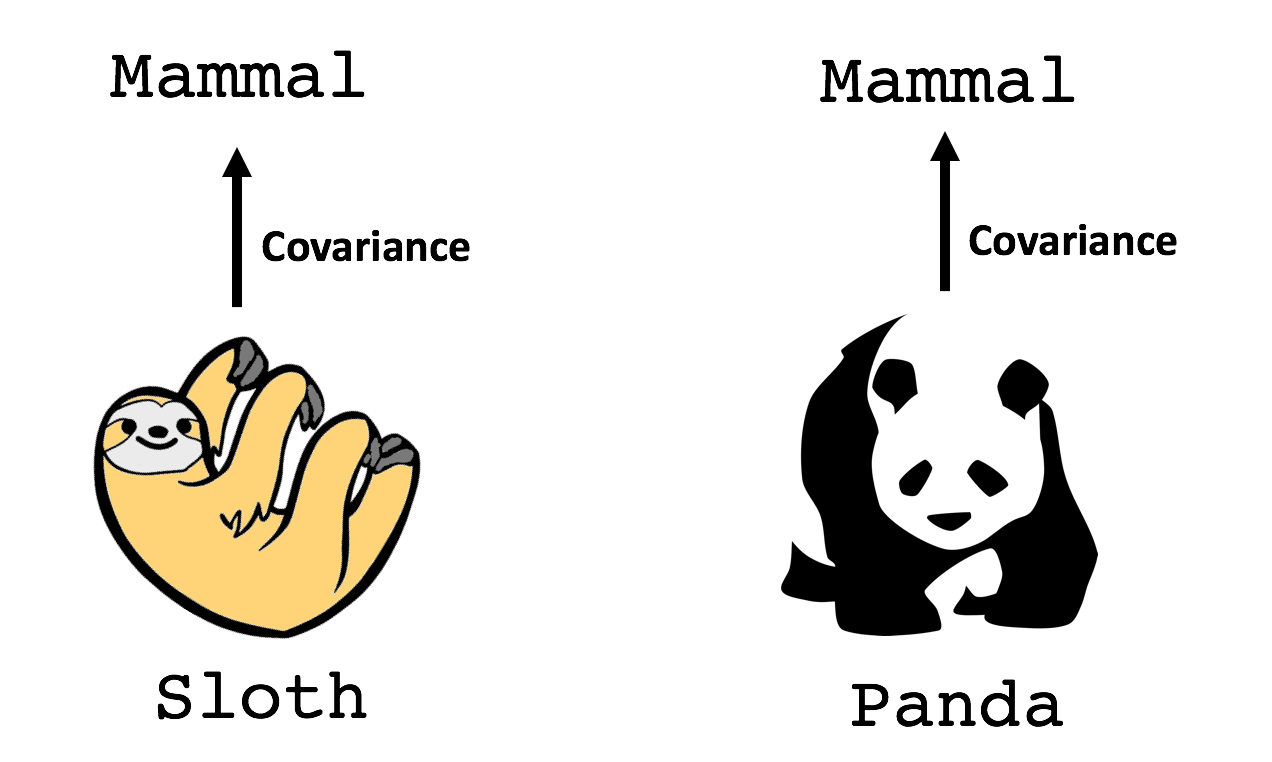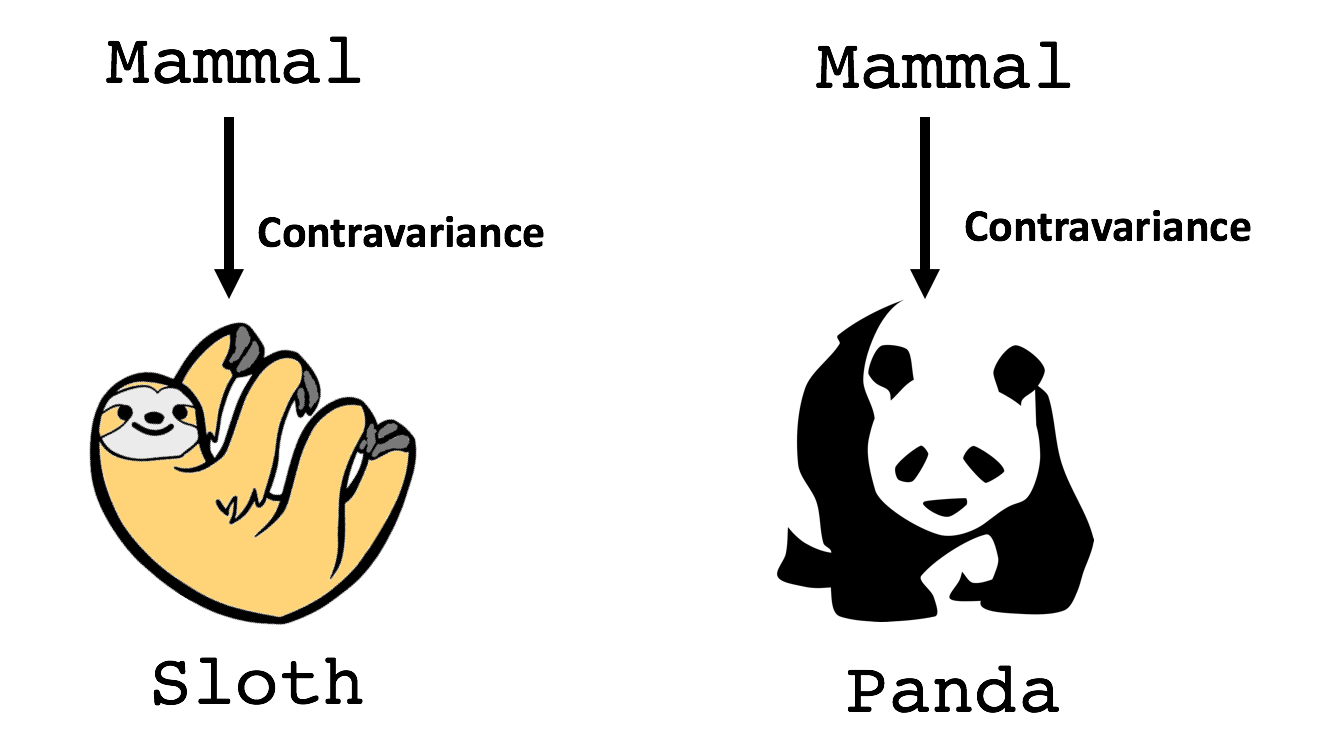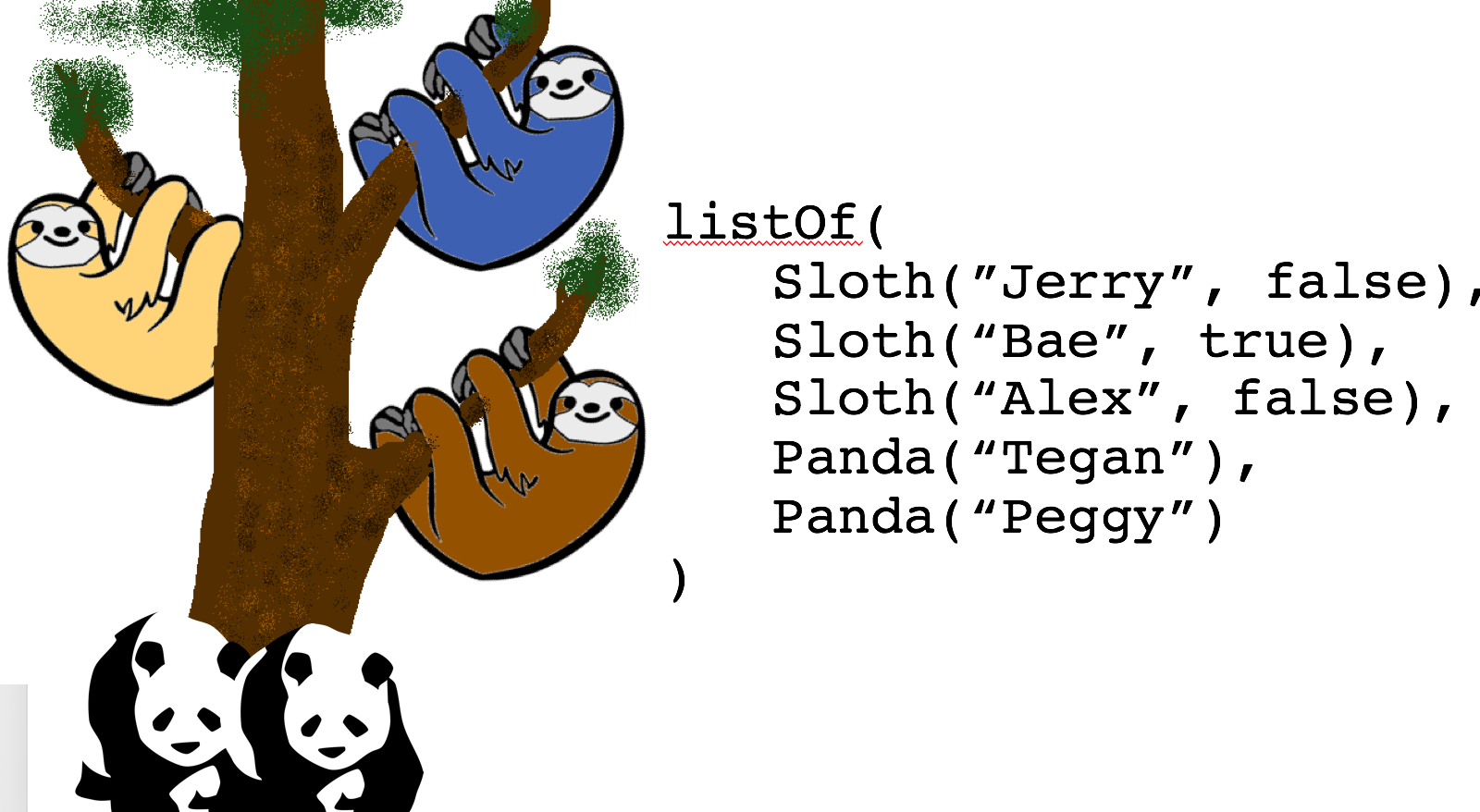Codetown
Codetown ::: a software developer's community
Kotlin Thursdays - Introduction to Kotlin Generics, Part 1
Hi folks! Welcome to Kotlin Thursdays. I’m really excited to kick off the first one of the year, and what better way to do it than tackling Generics in Kotlin? Generics in code can actually create stronger type-checking systems in your code, as this gives programmers the ability to fix issues at compile time rather than runtime.
Topics
- Kotlin Generics: Classes, Types, Generic Classes, Generic Functions, Covariance & Contravariance
Resources
- Kotlin Generics: https://kotlinlang.org/docs/reference/generics.html
- Project Source code: https://github.com/Kotlin-Thursdays/Generics-in-Kotlin
Kotlin Classes and Types
Before we can run, we have to walk first. Let’s start with covering the difference between classes and types in Kotlin. Often, when we hear these two words in Kotlin, they might be used interchangeably; but it turns out, there are differences between the words!
In Kotlin, a type describes properties a set of objects may share, which tells the compiler how the programmer intends to the use the data. A Kotlin class is just an implementation of that type. What this means is that while a class is always a type, a type is not necessarily a class.
Let’s take this non-generic Sloth class for example:
data class Sloth(val name: String, val isTwoFingered: Boolean) {
fun eat() {...}
fun sleep() {...}
}
This sloth doesn’t do very much. I want his life.
So is a Sloth a class or a type? Well, it’s both, as it is a class but also the name of the type. But what about Sloth types saved in variables?
var jerryTheSloth: Slothdeclares a variable that holds an instance of theSlothclass.var jerryTheSloth: Sloth?shows that Jerry the Sloth can also be declared as a nullable type. Every Kotlin class can be used to construct at least 2 types!
The distinction between types and classes can actually be traced back to programming language theory! Is it a pain? Yes. But it is useful? Also yes, especially when we start talking about Generics.
Generics Type Parameters
As with many generic collections you may see in Kotlin such as Lists, Sets, and Maps, type arguments can be inferred by the Kotlin complier as long as there are objects in the collection.
val slothCrew = listOf(
Sloth("Jerry", false),
Sloth("Bae", true),
Sloth("Chrissy", false)
)
For empty collections, the type will need to be explicitly defined either with
val slothReg: List<Sloth> = listOf()
or
val slothReg = listOf<Sloth>()
Generic Functions
We have our sloth crew, but we all want them to be fed at once. We could write our function to take a list of Sloths:
fun feedCrew(crew: List<Sloth>) {
crew.forEach {
it.eat()
}
}

Jerry, Bae, and Chrissy chillin in my paint masterpiece
This is all fine and dandy, but what if we wanted a panda crew joined the party and we also had to feed them? We couldn’t use this same function for Sloths, so we’d have to write a similar function for Pandas.
data class Sloth(val name: String, val isTwoFingered: Boolean) { fun eat() {} fun sleep() {}}
fun feedCrew(crew: List) {
crew.forEach {
it.eat()
}
}
data class Panda(val name: String) {
fun eat() {}
fun sleep() {}
}
fun feedCrew(crew: List) {
crew.forEach {
it.eat()
}
}
If they do the same thing, couldn’t we try to consolidate this function into one? Let’s look into the possibility of using Generic functions to work with any list. We could write a generic feedCrew() function that extends the type Listand when we use it, define the type in the parameter.
The problem is, we can’t actually make the eat() call in this function. This is because as far as the compiler is concerned, not all List types have an eat()function. Here, we can write our function and data classes so that have these two classes inherit from a Mammal class as a subtype.
open class Mammal(val name: String) { fun eat() {} fun sleep() {}}
data class Sloths(val slothName: String, val isTwoFingered: Boolean): Mammal(slothName)
data class Pandas(val pandaName: String) : Mammal(pandaName)
fun feedCrew(crew: List) { // List is covariant on its element type
crew.forEach {
it.eat()
}
}
fun main() {
val slothCrew = listOf(
Sloths("Jerry", false),
Sloths("Bae", true),
Sloths("Chrissy", false),
)
val pandaCrew = listOf(
Pandas("Jay"),
Pandas("Peggy")
)
feedCrews(slothCrew)
feedCrews(pandaCrew)
}
Covariance & Contravariance
Why does this really work? If you do Cmd + Click on List in the parameter for feedCrew, we see the signature
public interface List<out E> : Collection<E>
where the list is covariant on its element type.
A covariance class is a generic class where subtyping is preserved. Making a type parameter of a covariant class makes it possible to pass values of that class as function arguments and return values when the type arguments don’t exactly match the ones in the function definition. More specifically, the acceptance criteria for these type arguments when they don’t match is that they are at least the subtype of the defined type argument.
In Kotlin, to declare the class to be covariant on a certain type parameter, you put the out keyword before the name of the type parameter to produce the element type.
Of course, in covariance, this only goes one way. We can say that “a Panda is a subtype of a Mammal” but we can’t say a Mammal is a Sloth.
Subtyping for the class is preserved: Producer<Sloth/Panda> is a subtype of Producer<Mammal>
Contravariance, on the other hand, is a reflection of covariance.
Subtyping for the class is reversed: Consumer<Mammal> is a subtype of Consumer<Sloth/Panda>
In Kotlin, to declare the class to be contravariant on a certain type parameter, you put the in keyword before the name of the type parameter to consumethe element type.
Let’s say we wanted to mash the whole crew together and sort the names in alphabetical order.
Squaaaaadddd
We can use the Comparator interface to be able to do this:
interface Comparator<in T> {
fun compare(e1: T, e2: T): Int {...}
This is what the implementation in the code looks like!
val crewCrewCrew = listOf( Sloths("Jerry", false), Sloths("Bae", true), Sloths("Alex", false),
Pandas("Tegan"),
Pandas("Peggy")
)
val compareByNames = Comparator { a: Mammal, b: Mammal ->
a.name.first().toInt() - b.name.first().toInt()
}
println(crewCrewCrew.sortedWith(compareByNames))
The output, of course, gives us:
[Sloths(slothName=Bae, isTwoFingered=true), Sloths(slothName=Chrissy, isTwoFingered=false), Sloths(slothName=Jerry, isTwoFingered=false), Pandas(pandaName=Peggy), Pandas(pandaName=Tegan)]
I hope you enjoyed this blurb on an introduction in Kotlin Generics! Next week, we will continue on covering Higher-Order Functions and Reified Generics in Kotlin. See you next week!
Tags:
Replies to This Discussion
Notes
Welcome to Codetown!
 Codetown is a social network. It's got blogs, forums, groups, personal pages and more! You might think of Codetown as a funky camper van with lots of compartments for your stuff and a great multimedia system, too! Best of all, Codetown has room for all of your friends.
Codetown is a social network. It's got blogs, forums, groups, personal pages and more! You might think of Codetown as a funky camper van with lots of compartments for your stuff and a great multimedia system, too! Best of all, Codetown has room for all of your friends.
Created by Michael Levin Dec 18, 2008 at 6:56pm. Last updated by Michael Levin May 4, 2018.
Looking for Jobs or Staff?
Check out the Codetown Jobs group.
InfoQ Reading List
Presentation: Several Components are Rendering: Client Performance at Slack-Scale

Jenna Zeigen discusses front-end performance issues encountered by Slack as they continue to grow and evolve the desktop app.
By Jenna ZeigenSSH Backdoor from Compromised XZ Utils Library

When Microsoft Engineer Andres Freund noticed SSH was taking longer than usual he discovered a backdoor in xz utils, one of the underlying libraries for systemd, that had taken years to be put in place. The backdoor had found its way into testing releases of Linux distributions like Debian Sid, Fedora 41 and Fedora Rawhide but was caught before propagating into more highly used stable releases.
By Chris SwanFor Practitioners, by Practitioners: Solve Your Software Challenges at InfoQ & QCon Software Events

Behind every InfoQ Dev Summit and QCon software development conference is a collective of distinguished senior software practitioners who carefully curate the topics based on the crucial trends and essential best practices you need to know about. These architects and leaders are charged with creating THE conference they would want to attend.
By Artenisa ChatziouHow Technology Can Drive Culture Change in Software Organisations

Technological improvements like containers, VMs, infrastructure-as-code, software-defined-networking, collaborative version control, and CI/CD can make it possible to fix cultural issues around organisational dynamics and bad product delivery. According to Nigel Kersten, software leaders should leverage tech to create positive changes in organisational dynamics and relationships between teams.
By Ben LindersRadius is Now a Cloud Native Compute Foundation (CNCF) Sandbox Project

The Microsoft Azure Incubations Team recently announced the approval of Radius as a Cloud Native Compute Foundation (CNCF) sandbox project. Radius is a cloud-native, cloud-agnostic application platform that the CNCF has recognized as having the potential to contribute to the cloud-native ecosystem.
By Steef-Jan Wiggers
© 2024 Created by Michael Levin.
Powered by
![]()




